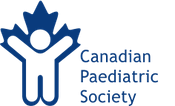Young children at risk from cannabis edibles, according to new data from the Canadian Paediatric Surveillance Program
OTTAWA —The number of young children needing medical care after accidentally ingesting cannabis has been on the rise since Canada legalized recreational use of the drug last October, according to preliminary results from a Canadian Paediatric Surveillance Program (CPSP) study.
Between September and December 2018, 16 cases of serious adverse events involving recreational cannabis were reported to the CPSP. The majority of confirmed cases were due to accidental ingestion by young children of cannabis belonging to a parent or caregiver.
“The number of cases involving young children is striking,” said Dr. Christina Grant, a paediatrician in Hamilton, Ontario and co-principal investigator. “These early results highlight the urgency of prioritizing the needs of children and youth in policy and education initiatives, especially as edibles become legalized later this year.”
These data are similar to trends in Colorado and Washington state, where cannabis is also legal.
This two-year study will continue until October 2020 and will monitor trends following the legalization of edibles in the fall. Last February, the Canadian Paediatric Society recommended to Health Canada that any product resembling candy/sweets or appealing to children be prohibited and that packaging include warnings about known and potential harms to young children and fetuses from cannabis exposure. Health Canada’s final regulations were announced on June 14.
The preliminary cannabis data were among a number of study results released this week by the Canadian Paediatric Surveillance Program. Among the findings:
- The incidence rate of non-type 1 diabetes, once thought to be rare in children, is on the rise. The vast majority (71%) of reported cases are childhood-onset type-2 diabetes. Indigenous populations are disproportionately affected, raising questions about the link with social determinants of health.
- Babies have suffered life-threatening events associated with the use of teething necklaces and bracelets, including strangulation, choking and accidental swallowing. Results indicate that physicians and other health care professionals should alert families to the dangers of using these products as part of routine anticipatory guidance
“We are fortunate in Canada to have public health surveillance systems like the CPSP which monitor health status, detect emerging health threats, and evaluate policies to improve the health of Canadians,” said CPSP Chair Jonathon Maguire. “It is particularly important for rare
childhood diseases and rare complications of more common conditions where the collection of data from across Canada is necessary to obtain sufficient information to draw meaningful conclusions.”
The CPSP is a network of 2,700 Canadian paediatricians and paediatric subspecialists. It is a partnership between the Public Health Agency of Canada and the Canadian Paediatric Society. Through disease surveillance, the program generates valuable new knowledge to inform clinical research, practice and policy related to important rare conditions and evolving child health threats. Along with knowledge translation tools, including monthly tips on adverse drug reactions, the CPSP provides timely information to researchers, doctors, and health policy makers on both emerging and persisting health conditions affecting children and youth.
-30-
Last updated: Jun 26, 2019
